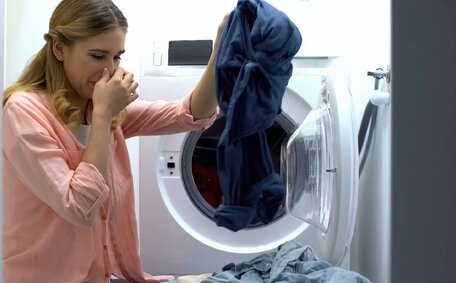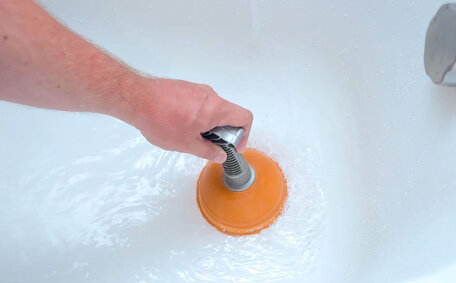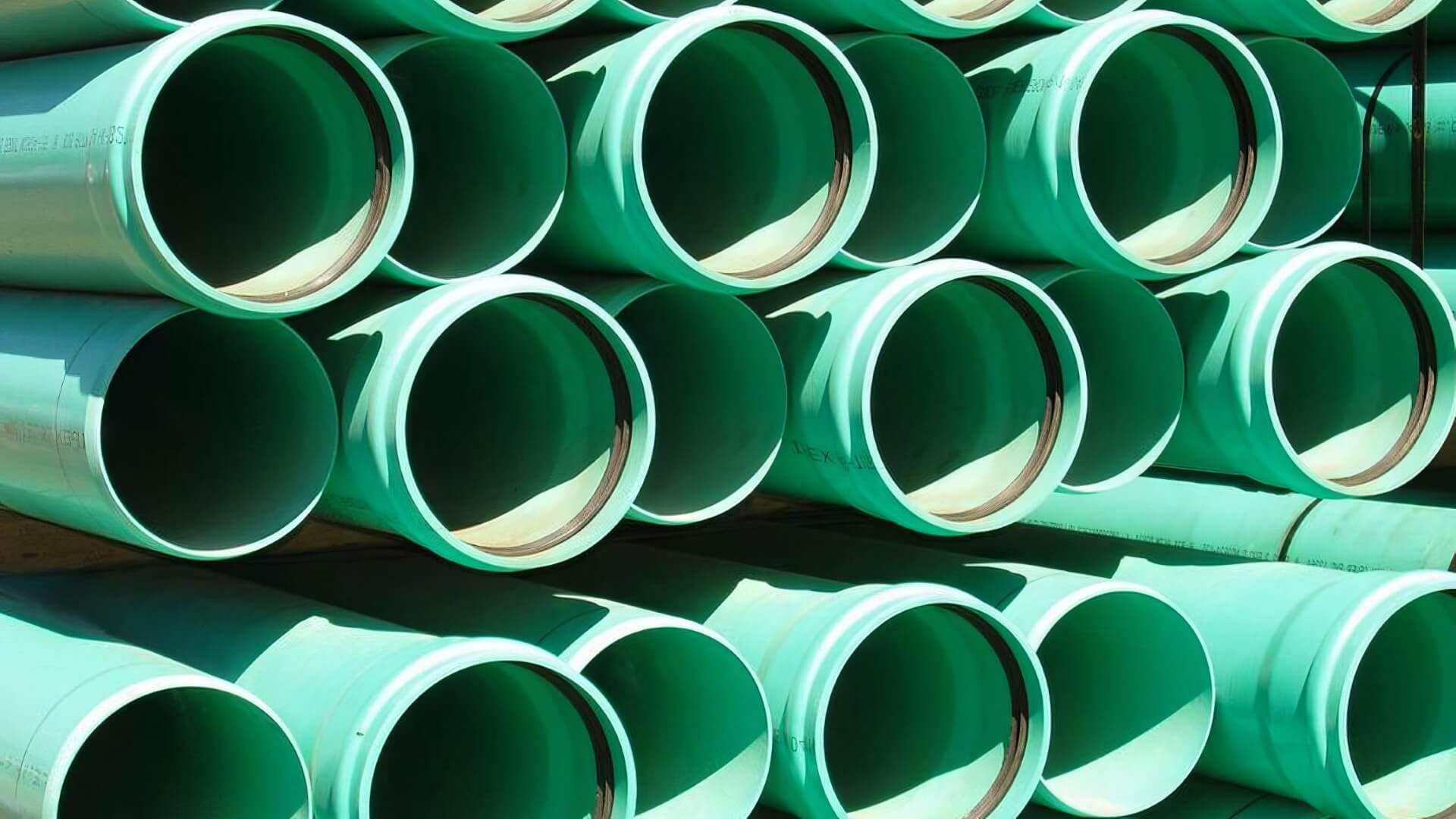Use Drain Strainers and Filters
Using drain strainers and filters is an effective way to prevent blockages in your drains. These devices act as a preventive barrier, capturing food particles, hair, and other debris before they cause blockages.
A basket-style strainer can be particularly effective in the kitchen, efficiently capturing food residues. The basket entraps food scraps preventing them from going down your sink and can be easily emptied into the trash.
For your bathroom sinks and for keeping your shower drain clear, various devices including pop-up stoppers, wire mesh screens, and dome strainers are adept at catching common culprits of drain blockages. Make sure the drain strainer and filters have small holes to prevent even tiny particles from sneaking through your kitchen drain.
Regular cleaning of strainers and filters is essential, which involves removing build-up and rinsing them in hot running water. Inspect and replace damaged strainers regularly to avoid clogs in your drain. During meal prep, crafting, or pet bathing, pay extra attention to prevent debris from clogging your kitchen sink.
Coffee grounds are infamous for causing clogs in kitchen drains. Employing a mesh basket strainer is an effective way prevent pesky particles from slipping down drain pipes. Include cleaning your sink trap and filter to remove food debris and you’ll find your chances of kitchen sink clogs reduced as part of your routine maintenance!
Avoid Pouring Fats, Oils and Grease Down the Drain
Disposing of fat, oil, and grease in your sink guarantees clogs and persistent blockages in your plumbing. As these substances cool inside your pipes, they can cause solidification and build up into thick deposits that cling to the interior walls. Over time, this accumulation solidifies and obstructs wastewater flow, leading to persistent blockages.
Never pour fats, oils, and grease down any drains to prevent clogs. Let fats solidify in a container before disposal in the rubbish bin rather than washing them away. Confirm that cooking utensils are thoroughly wiped with not too much toilet paper or paper towels before washing, acting as your prime defence against blockages.
Managing grease, oil along with similar substances with vigilance can substantially reduce the chance of a clogged kitchen sink. Avoid letting melted fat oil down, grease or any similar substances go into drain in your home, effectively helping to prevent pipe clogs.
Securely containing grease in an airtight container before it has a chance to cause plumbing issues in your kitchen pipes, and then responsibly discarding it, is the most environmentally conscious option. A touch of diligence on a regular basis goes a long way to protect your plumbing system from the issues induced by grease building up down your drain!
Properly Dispose of Food Waste
Always dispose of food waste and cat litter in the bin instead of down your drains to avoid clogs. Food items such as rice, pasta, oatmeal, and tea leaves can expand in water, potentially causing quick and troublesome blockages.
The best way to manage waste is to scrape all food remains, including excess cooking oil, into your general rubbish or trash can. Numerous local authorities provide green waste bins tailored for compostable items, making it convenient to channel scraps from your kitchen into your homes composting system.
If you have a garbage disposal, ensure to heed the advice: dont put expansive items like rice or pasta into it. Operate your disposal with a sufficient flow of water down your drain and ensure not to overload it. Garbage disposals can be useful, and an efficient way keep them functioning is by not overloading their capacity within your plumbing network.
Responsibly discarding food waste ensures harmful elements don’t go down the pipes, thus averting a frequent peril to your drainage and plumbing system. Composting, trash bins, and intelligent use of your garbage disposal will help circumvent costly drain obstructions and maintain an efficient kitchen.
Regularly Remove Hair and Soap Scum
Quickly accumulating hair, other particles, and soap scum can lead to significant blockages in your sinks and baths. To prevent this, regularly clearing accumulations of hair other debris, and soap scum is your best defence.
Use a hair catcher or drain snake to remove collected hair, followed by a hot water rinse to clear away soap scum and ensure your bathroom sink drains remain clear. Vigorously plunging the drain with hot water can prevent hair and soap residue from clogging your sink. Employ a homely concoction such as soda vinegar, serving as a benign drain purifier monthly, to dissolve soap scum and residual matter.
Establishing a schedule of weekly and monthly cleans is essential in mastering how prevent blocked drains from hair and soap buildup. An ounce of prevention saves the headache of dealing with your blocked drain!
Use Baking Soda, Vinegar and Boiling Water Treatments
Utilising everyday items like baking soda, vinegar, and a plumbing snake can help prevent blocked drains in an eco-friendly manner.
Combine half a cup of baking soda with one cup of vinegar, pour it down the drain, and follow with a hot water flush. The chemical reaction can break down grease and soap residue, ensuring a smooth flow down the drain and clear clogged areas. After letting the mixture sit for 5-10 minutes, run hot water down the drain to thoroughly rinse it.
Periodically pouring boiling water down the drain helps dissolve fat build-up and prevent clogs. This swift temperature shift can break up fat deposits in the drain pipe, effectively disrupting potential clogs before they solidify. Just be cautious of steam and splashing water when attempting to break up a clog during your routine maintenance on your drainage system.
Flushing with hot tap water is a safe alternative to chemicals and helps prevent residue blockages. The heat efficiently liquefies oil and grease build-ups, ensuring they don’t contribute to a blocked sink and continue down the drain unobstructed.
Regular use of these natural cleaning methods keeps your kitchen pipes unobstructed. They offer an inexpensive, non-toxic way to prevent sink drain clogs from occurring in an environmentally responsible manner.
When to Call a Professional Plumber
Even with preventive efforts, you may still need professional help for stubborn drain issues. If DIY methods like drain snakes, plungers, or natural cleaners fail, it’s time to call a professional plumber.
If drain performance declines, assess what actions you can take before professional help is required. If your sinks or bathtubs bubble persistently, it’s a sign to consult a professional plumber.
In many cases, the cause of severe blockages comes from extensive roots or root balls in external drainage pipes. Tree root intrusion, one of the toughest blockages, necessitates specialised equipment such as a drain camera and hydro-jetting for removal. Relying solely on chemicals is not a reliable solution for serious drain clogs.
For the Sydney suburb of Eastwood and surrounding areas, contact the experts at Eastwood Plumbing on 1300 349 338 or [email protected]. With 24/7 availability, local knowledge and over 25 years of addressing common plumbing issues, we can get your drains flowing freely again.
Do not delay seeking emergency cleaning services if you notice sewage backflow, a definitive sign of blocked drains. Contact a plumber at the first indications of a drain blockage. Our team carries the latest tools and technology to clear blocked drains while minimising damage to pipes.
Our trench drain replacement solutions are cost-effective and repair pipes when damaged by tree roots beyond normal fixes. You can count on our prompt, reliable and honest service to solve frustrating plumbing problems.






